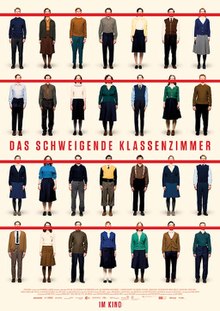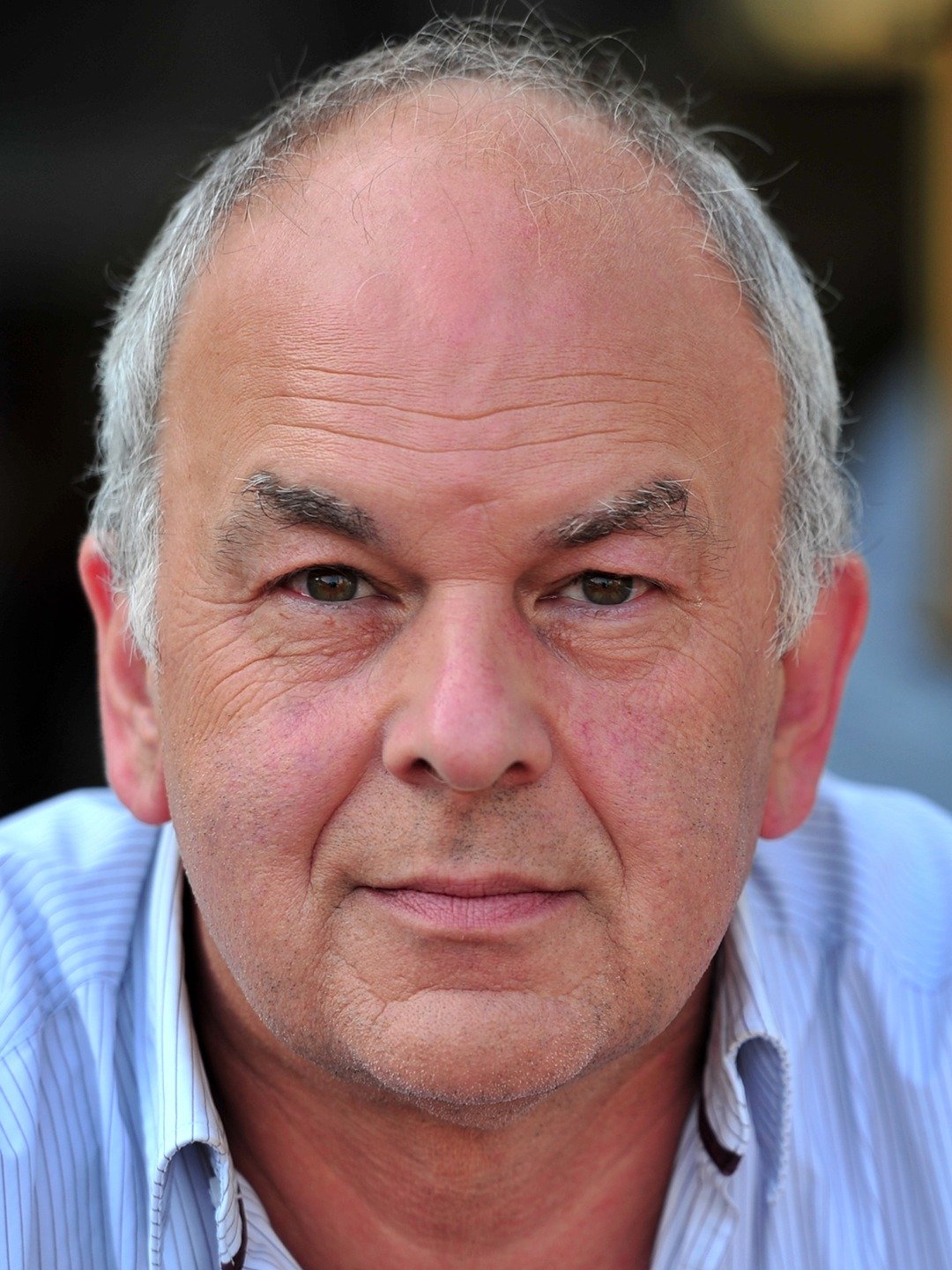
The Silent Revolution is the English title of a German historical drama (based on a true story) which premiered in 2018.
The main story is set in the second half of 1956 in the East German town of Stalinstadt (a socialist model city which was founded in 1950; in 1961 it was renamed Eisenhüttenstadt).
After hearing reports of recent violent events in Hungary, the students in the oldest class at the local high school decide to observe a moment of silence in order to remember and show respect for the victims of the Hungarian Revolution.
This brief and seemingly innocent gesture of support for the Hungarian victims causes a huge consternation at the school. It is regarded as an illegal political demonstration, a serious crime, and soon the conflict snowballs to levels which the students could never have imagined.
In this drama, we follow the case from the beginning to the end. We see how the case is discussed among the students, in the families, in the school administration and in the national government.
We follow the conflict as it escalates from a single classroom to the school administration and all the way to the minister of education.
Here is some basic information about this drama:
** Original German title: Das schweigende Klassenzimmer
** Directed by Lars Kraume
** Screenplay by Lars Kraume
** Based on the German book The Silent Classroom by Dietrich Garstka (published in 2006)
** Language: German
** Run time: 111 minutes
The cast can be divided into three different groups:
# 1. THE STUDENTS
** Leonard Scheicher as Theo Lemke
** Tom Gramenz as Kurt Wächter
** Lena Klenke as Lena
** Isaiah Michalski as Paul
** Jonas Dassler as Erik Babinski
** Nora Labisch as Klara Winkler
** Lena Labisch as Regina Winkler
# 2. PARENTS AND FAMILY
** Ronald Zehrfeld as Hermann Lemke - Theo’s father
** Carina Wise as Irmgard Lemke - Theo’s mother
** Max Hopp as Hans Wächter - Kurt’s father
** Judith Engel as Anna Wächter - Kurt’s mother
** Bettina Hoppe as Christa – Erik’s mother
** Götz Schubert as the priest Melzer – Erik’s stepfather
** Michael Gwisdek as “Uncle” Edgar – Paul’s great-uncle
** Carmen-Maja Antoni as Lena’s grandmother
# 3. GOVERNMENT OFFICIALS
** Rainer Reiners as school teacher Mosel
** Florian Lukas as school director Schwarz
** Jordis Triebel as Miss Kessler – an investigator
** Daniel Kraus as FDJ secretary Lange
** Burghart Klaussner as education minister Fritz Lange
Since this drama is based on a true story, the basic facts are part of the public record. They are not a secret. Therefore, I could mention many of them here. But I am not going to do that. I will only tell you how the story begins.
In addition, I will offer some general information about life in East Germany. I do not wish to spoil the viewing for anyone.
While this drama is based on a true story, it is not a documentary film. It is a dramatized version of events. Not everything happened exactly as shown here. Some details have been added or excluded or changed for practical reasons or dramatic purposes. But the basic story is true.
Obviously, the Hungarian Revolution of 1956 can be interpreted in different ways, depending on your political point of view.
** In East German mass media, it was seen as a counter-revolution in which some Hungarians tried to destroy socialism and restore capitalism. This had to be stopped, with violence if necessary.
** In the western world, the rebellion was seen as a noble struggle for freedom and against the tyranny of the communist party and Soviet control of Eastern Europe.
The western version is not easily available in East Germany. But the students decide to visit Paul’s great-uncle, known as Uncle Edgar, who lives in East Berlin.
In this location you can listen to RIAS, the Radio in the American Sector of West Berlin. This is how the students are able to get a version of events which is not authorized by the East German government.
At the time, it is regarded as a crime to listen to a western radio station. Later on, the East German government realizes that it is impossible to enforce this rule, so they decide to let it go, but in 1956, it is still regarded as a serious crime.
In a matter of days, the conflict escalates. The school responds with stern measures which seem totally out of proportion to the alleged crime.
The administration wants to know who is behind this illegal
political demonstration. They are asking:
** Who is the mastermind?
** Who is the ringleader?
The students are threatened with harsh punishment. But they refuse to talk.
At home, in the families, the parents are putting pressure on their sons and daughters. Please make this problem go away! Please give them a name!
The parents cannot afford to have trouble with the authorities. In East Germany, the whole family is regarded as guilty, if a member of a family does something wrong. If a student breaks the law, the father and mother may be punished: they may lose their jobs; if the family has any privileges, they will be lost.
The only exception to this rule is when a member of the political elite does something wrong.
The members of the elite will (in most cases) protect each other. Since a member of the elite cannot be accused and punished, the authorities will try to find a scapegoat, a person who has no political connections; a person who can be sacrificed.
This is how the story begins and this is where my presentation comes to an end.
If you wish to know what happens to the students and the people around them, you must watch the drama – or read the book – all the way to the end.
What do reviewers say about this historical drama?
** On IMDb it has a rating of 75 percent.
** On Rotten Tomatoes there are two figures:
84 percent = the general audience
90 percent = the professional critics
** On Amazon there are more than 300 global ratings and reviews. The average rating is 4.7 stars.
As you can see, the ratings are quite good. If you ask me, the first rating (IMDb) is too low, while the other ratings are much more appropriate.
I want to go all the way to the top with this product. I think it deserves a rating of five stars.
PS # 1. Dietrich Garstka was born in Berlin in 1939. His book The Silent Classroom was published in 2006.
The movie which is based on his book premiered at the Berlin Film Festival on 20 February 2018.
Only two months later, on 18 April 2018, Garstka passed away after a long period with a serious illness.
PS # 2. The title The Silent Classroom is an echo of a famous novel by the German author Erich Kästner which was published in 1933: The Flying Classroom. Kästner's novel has been turned into a German movie several times: 1954, 1973 and 2003.
PS # 3. The following reviews are available online:
** Boyd van Hoeij, “The Silent Revolution, Film Review, Berlin 2018,” The Hollywood Reporter, 20 February 2018.
** Isabelle Castano Friedberg, “Review: The Silent revolution,” Greene Gazette, 26 July 2019.
PS # 4. Lars Kraume is the director of several movies, including Measures of Men (2023).
*****

The German film director Lars Kraume
(born 1973)
*****

